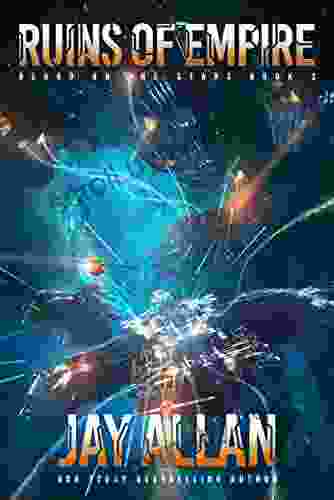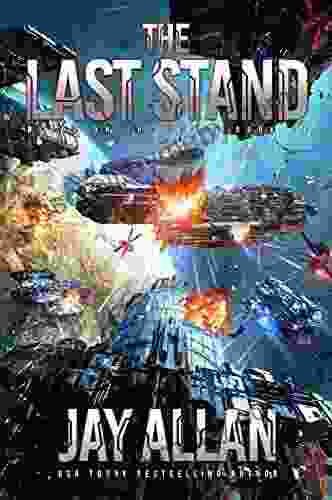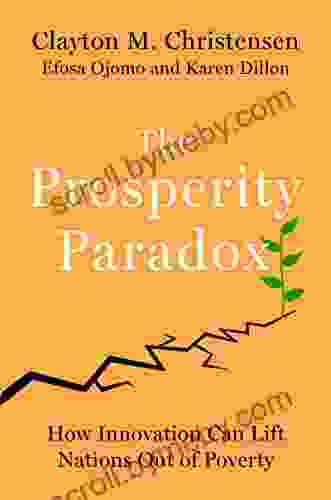The Fiji Experience: Fijian Politics and Pacific Ethno Nationalism

Fiji is a fascinating country with a rich political history. It is a multi-ethnic nation with a complex web of relationships between its indigenous Fijian population and the Indo-Fijian minority. Fijian politics has been characterized by ethno nationalism, which is a form of nationalism that emphasizes the importance of ethnic identity in political life.
4 out of 5
| Language | : | English |
| File size | : | 40 KB |
| Text-to-Speech | : | Enabled |
| Screen Reader | : | Supported |
| Enhanced typesetting | : | Enabled |
| Print length | : | 19 pages |
In this article, we will explore the history of ethno nationalism in Fiji and its impact on Fijian politics. We will also discuss the current political landscape in Fiji and the challenges facing the country as it seeks to build a more inclusive and democratic society.
A History of Ethno Nationalism in Fiji
The roots of ethno nationalism in Fiji can be traced back to the colonial period. The British colonialists introduced a system of indirect rule that favored the indigenous Fijian population over the Indo-Fijian minority. This system created a sense of grievance among Indo-Fijians, who felt that they were being discriminated against.
After Fiji gained independence in 1970, the tensions between indigenous Fijians and Indo-Fijians continued to simmer. The indigenous Fijian leaders adopted a policy of "Fijian paramountcy," which gave preferential treatment to indigenous Fijians in all aspects of life. This policy further alienated Indo-Fijians, who felt that they were being treated as second-class citizens.
In 1987, a military coup led by Sitiveni Rabuka overthrew the government of Prime Minister Timoci Bavadra. Rabuka justified the coup by claiming that he was protecting the interests of indigenous Fijians. He then installed a new government that was dominated by indigenous Fijians.
The Rabuka coup had a profound impact on Fijian politics. It led to the adoption of a new constitution that enshrined the principle of "Fijian paramountcy." The constitution also created a new electoral system that gave indigenous Fijians a majority in the parliament.
The Current Political Landscape in Fiji
The current political landscape in Fiji is complex and fluid. The country has experienced two military coups since 2000, and the military continues to play a significant role in politics. The current government is led by Prime Minister Frank Bainimarama, who came to power in a military coup in 2006.
Bainimarama has promised to promote racial harmony and economic development in Fiji. He has also introduced a number of reforms, including a new constitution that is designed to be more inclusive. However, the country remains deeply divided, and there are serious concerns about the state of democracy in Fiji.
Challenges Facing Fiji
Fiji faces a number of challenges as it seeks to build a more inclusive and democratic society. These challenges include:
- Ethno nationalism: Ethno nationalism is a major obstacle to national unity in Fiji. The deep-seated mistrust between indigenous Fijians and Indo-Fijians makes it difficult to build a common national identity.
- Military intervention: The military has intervened in Fijian politics on numerous occasions. This has undermined the country's democratic institutions and made it difficult to build a stable and accountable government.
- Weak economy: Fiji's economy is heavily dependent on tourism and remittances from overseas Fijians. The country is also vulnerable to natural disasters, such as cyclones and floods.
- Climate change: Fiji is one of the most vulnerable countries in the world to climate change. Rising sea levels and more frequent extreme weather events are posing a serious threat to the country's economy and environment.
Fiji is a complex and fascinating country with a rich political history. The country has experienced both great progress and setbacks in its efforts to build a more inclusive and democratic society. The challenges facing Fiji are significant, but the country has the potential to overcome these challenges and build a brighter future for all its citizens.
4 out of 5
| Language | : | English |
| File size | : | 40 KB |
| Text-to-Speech | : | Enabled |
| Screen Reader | : | Supported |
| Enhanced typesetting | : | Enabled |
| Print length | : | 19 pages |
Do you want to contribute by writing guest posts on this blog?
Please contact us and send us a resume of previous articles that you have written.
 Book
Book Novel
Novel Page
Page Chapter
Chapter Text
Text Story
Story Genre
Genre Reader
Reader Library
Library Paperback
Paperback E-book
E-book Magazine
Magazine Newspaper
Newspaper Paragraph
Paragraph Sentence
Sentence Bookmark
Bookmark Shelf
Shelf Glossary
Glossary Bibliography
Bibliography Foreword
Foreword Preface
Preface Synopsis
Synopsis Annotation
Annotation Footnote
Footnote Manuscript
Manuscript Scroll
Scroll Codex
Codex Tome
Tome Bestseller
Bestseller Classics
Classics Library card
Library card Narrative
Narrative Biography
Biography Autobiography
Autobiography Memoir
Memoir Reference
Reference Encyclopedia
Encyclopedia Cp Lowe
Cp Lowe Erin Carpenter
Erin Carpenter Cynthia Galey Peck
Cynthia Galey Peck Cynthea Liu
Cynthea Liu Megan Massacre
Megan Massacre Crockett Johnson
Crockett Johnson Francis Fukuyama
Francis Fukuyama Steve Talbot
Steve Talbot Courtney Summers
Courtney Summers Cyndi Marko
Cyndi Marko Codeone Publishing
Codeone Publishing Cynthia Levinson
Cynthia Levinson D Celestino
D Celestino Karen E Mcconnell
Karen E Mcconnell Paul Buhle
Paul Buhle Co Spinhoven
Co Spinhoven Henry Freeman
Henry Freeman Eric Musgrave
Eric Musgrave Colman Andrews
Colman Andrews D E Moreau
D E Moreau
Light bulbAdvertise smarter! Our strategic ad space ensures maximum exposure. Reserve your spot today!

 Nick TurnerJourney into a Surreal and Enchanting Realm: Discover "No Country for Eight...
Nick TurnerJourney into a Surreal and Enchanting Realm: Discover "No Country for Eight... Jack LondonFollow ·19.1k
Jack LondonFollow ·19.1k Daniel KnightFollow ·17.2k
Daniel KnightFollow ·17.2k Jerome PowellFollow ·19.2k
Jerome PowellFollow ·19.2k Peter CarterFollow ·14.4k
Peter CarterFollow ·14.4k Charles DickensFollow ·11.6k
Charles DickensFollow ·11.6k Ed CooperFollow ·2k
Ed CooperFollow ·2k Sam CarterFollow ·18.2k
Sam CarterFollow ·18.2k Albert CamusFollow ·5.2k
Albert CamusFollow ·5.2k

 Cruz Simmons
Cruz SimmonsUnveiling the Secrets: An Insider Guide to School Bonds...
Unlock the Power of School...

 Gil Turner
Gil TurnerRuins of Empire: Blood on the Stars - The Epic Space...
Ruins of Empire: Blood on the Stars is the...

 Allen Ginsberg
Allen GinsbergPrepare for the Ultimate Space Opera: Delve into The Last...
Embark on an...

 Anton Foster
Anton FosterUnleash Your Inner Artist: The Ultimate Guide to Oil...
Chapter 1: The...
4 out of 5
| Language | : | English |
| File size | : | 40 KB |
| Text-to-Speech | : | Enabled |
| Screen Reader | : | Supported |
| Enhanced typesetting | : | Enabled |
| Print length | : | 19 pages |














